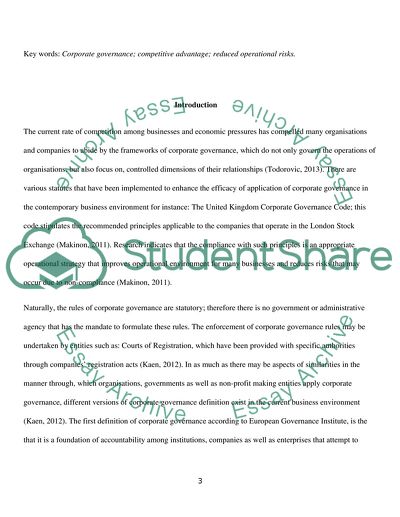Cite this document
(“The orpus of orporate Governance Literature review - 1”, n.d.)
The orpus of orporate Governance Literature review - 1. Retrieved from https://studentshare.org/social-science/1852727-the-role-of-corporate-governance-in-improving-companies-performance
The orpus of orporate Governance Literature review - 1. Retrieved from https://studentshare.org/social-science/1852727-the-role-of-corporate-governance-in-improving-companies-performance
(The Orpus of Orporate Governance Literature Review - 1)
The Orpus of Orporate Governance Literature Review - 1. https://studentshare.org/social-science/1852727-the-role-of-corporate-governance-in-improving-companies-performance.
The Orpus of Orporate Governance Literature Review - 1. https://studentshare.org/social-science/1852727-the-role-of-corporate-governance-in-improving-companies-performance.
“The Orpus of Orporate Governance Literature Review - 1”, n.d. https://studentshare.org/social-science/1852727-the-role-of-corporate-governance-in-improving-companies-performance.


